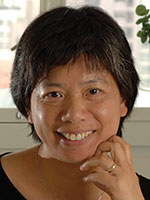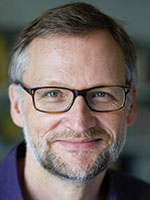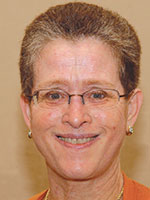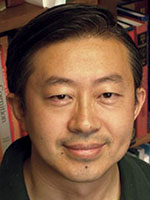Cover Story
Passport to Collaboration

Scientists in a variety of disciplines over the past several years have been looking to other nations as places to carry out their research.
Some researchers travel abroad looking for new experiences and new collaborations. Psychological scientists in particular have pursued temporary or long-term opportunities abroad for research on cultural differences, perception, and diverse cognitive processes. For them, the adjustment to a foreign academic climate often carries a mix of opportunities, challenges and new insights.
The Observer asked four psychological scientists who have worked internationally to share their own experiences and lessons learned.

Terry Kit-fong Au
Terry Kit-fong Au
University of Hong Kong
APS Fellow
I have been a professor in the Department of Psychology at the University of Hong Kong since 2002. I grew up in Hong Kong, went to the United States for my undergraduate and doctoral studies in psychology, and then taught at Brown University and the University of California, Los Angeles, for 15 years. When I returned to Hong Kong, I had lived longer in the United States than in my home city.
Moving across the Pacific in 2002 meant I could more easily work culture into my research program. In the wake of the 2003 worldwide SARS epidemic — which hit Hong Kong very hard — I built on research that I had started at UCLA on conceptual change in HIV education to examine respiratory infection prevention. Being in Hong Kong, I was able to study Chinese folk beliefs about causes of common respiratory-infections (e.g., colds, flu), and I demonstrated how presenting a simple biological causal mechanism in cold/flu education could lead to health-promoting behavioral change as well as conceptual change for Hong Kong Chinese children. This research has led to collaboration with Laura Romo at the University of California, Santa Barbara (UCSB), with funding from the National Institutes of Health in the United States. In our project, we adopt this “Think Biology” approach to develop health education for Latino kindergarteners newly immigrated to the United States. My experience in Hong Kong primed me for greater sensitivity to cultural issues on this project. In general, my empirical work now has a greater emphasis on cultural issues and on ecological significance.
Being in Hong Kong also means that I can take advantage of the linguistic differences between Chinese and alphabetic languages (e.g., English) to ask fundamental questions about language and reading development. Being in an academic research community far, far smaller than that in the United States has led me to venture into the real-world community to collaborate with practitioners in clinical psychology. In these collaborations, I have gone beyond efficacy study and have evaluated the effectiveness of cognitive-behavioral group therapy for childhood anxiety. I have collaborated with practitioners in speech therapy to study comorbidity of specific language impairment and dyslexia in Chinese. In addition, I have collaborated with clinical colleagues in dentistry to study the oral-health literacy of parents with young children.
I also have crossed borders in another sense, finding collaborators in Mainland China (Professor Ruixue Xia, Northwest Normal University) and in the United Kingdom (Professor Merideth Gattis, Cardiff University) with whom to study cultural and individual differences in parenting during infancy. With collaborators in Australia (Joanna Kidd, University of Sydney) and in Canada (APS Fellow Linda Siegel, University of British Columbia), I’ve studied language development. My work with Romo at UCSB is another example of border-crossing research. Connection rather than isolation turns out to be my Hong Kong story.
I decided to return to Hong Kong to bring what I had learned in the United States — research and career mentoring, recruitment and retention of faculty members — to help build up a department with much growth potential. But I discovered that colleagues with very different research interests are more likely to bounce ideas off one another in the United States than they are here. While such discussions are common on multidisciplinary research teams in Hong Kong, they rarely take place in hallways in the catch-as-catch-can fashion.
Here, I felt like a cultural ambassador from the United States academic world — especially in the beginning, and especially when I tried to introduce what I considered to be good practices from the United States. Because of this, I was more self-conscious and less carefree than I had been in the States. One of my most significant challenges has been striking a good balance between being modest and confident, and between being willing to lead while not being too pushy.
I have brought commonly known good practices from the US academic community and gotten credit for having insightful ideas. By serving as a cultural conduit, I can help develop academic psychological science in Hong Kong. It feels good, even though at times I feel like somewhat of an imposter.
My word of advice for researchers crossing geographic and cultural boundaries: Be flexible to see if you can find common ground between your prior research interests and a potential collaborator’s ideas.

Ralph Hertwig
Ralph Hertwig
Max Planck Institute for Human Development
Berlin, Germany
APS Fellow
I’ve worked abroad several times. Most recently I lived in Switzerland for 9 years and worked as Professor of Cognitive and Decision Sciences at the University of Basel. I also spent substantial periods of time in the United States at two points in my scientific career. The first was as a graduate student, when I spent 2½ years in the psychology department at the University of Chicago (UofC). There I worked primarily on my dissertation, which was concerned with how we understand, model, and improve people’s statistical reasoning. My main collaborator was my doctoral adviser, APS Fellow Gerd Gigerenzer, who had just joined the UofC faculty.
My second stay in the United States was as a research scholar at Columbia University in New York City. I was affiliated with the psychology department and the business school and was hosted by Past APS Board Member Elke Weber, a professor at Columbia. My research covered three main topics. The first was a research topic that later became an established line of research: decisions from experience. Together with Elke and some other colleagues, I wrote one of the first papers on that topic. Second, I did some conceptual work, writing, for instance, a Behavioral and Brain Sciences paper on the different experimental cultures of experimental economics and experimental psychology. Third, I worked on the topic of heuristics and the domains in which they are used. At the time, I was particularly interested in an allocation heuristic that parents use when deciding how to distribute their limited resources among their children.
Apart from Elke, my main collaborator at Columbia was Ido Erev, who was a visiting professor in the business school at the time. Because we were both visitors, we perhaps had more free time than the faculty did, and we were able to meet and exchange ideas. It was the beginning of a fruitful collaboration.
I also did my best to participate as much as possible in the rich intellectual life of both Chicago and Columbia, going to lots of talks in different departments, chatting with plenty of interesting people, and generally trying to expose myself to new or different ideas, thoughts, and debates.
There were some purely pragmatic reasons for working in the United States. In the field of psychology, you have to publish in English if you want to be read by your international peers — and you need the linguistic competence to do so. I’d learned English at school but hadn’t fully mastered the language. So working in an English-speaking country was the perfect opportunity to improve my English speaking and writing skills.
I also was drawn to Chicago and Columbia as two places with thrilling academic environments. I wanted to experience those environments and broaden my academic horizons. And, of course, Chicago and New York are vibrant cities, and I was excited to be able to live in a country whose culture and everyday life is to some extent very similar to my own, but in some important ways also very different. And the unanticipated icing on the cake was that I met my wife!
I experienced the way science is done in psychology as being very similar in Germany, Switzerland, and the United States. The institutes have behavioral and experimental labs; they have scanners and EEG machines; researchers run behavioral experiments, use computer simulations, and test similar theories. So there’s not much difference in the day-to-day business of psychology.
For me, the most salient difference had to do with the intellectual atmosphere. At universities like Columbia or Chicago, you have real clusters of researchers working on similar topics. That creates a critical mass and is conducive to intellectual dialogue and exchange. In the German and Swiss universities, such clusters and critical masses are less common (for various reasons). It makes it more difficult to find common ground and shared interests with your colleagues, who come from all areas of psychology. Basically, the key difference is in the organization of the university departments, rather than in the way science is done.
I did have to make all sorts of adjustments in everyday life: many small ones, a few larger ones. For example, in Germany and Switzerland you eat the main dish of the day at lunchtime and have a lighter supper. In the United States, it’s the other way around, which changes the rhythm of the day. I found it fascinating to try out different cultural habits, rules, and rituals, and to see how I liked them and which I wanted to take home with me — but this exploring of new spaces and ways of life was more fun than challenging.
The main challenge for me was probably dealing with the emotional costs of being a long way from family and friends, and being in a new environment where I hardly knew anybody and where it takes time to become part of the social fabric. Sometimes, I remember, I was also simply too timid or too tired to create opportunities to meet and introduce myself to new people.
I don’t think the international experience had any impact at all on my empirical work per se. But it did give me the opportunity to get to know some of the people behind the articles I would read. And, of course, the international experience made me much more comfortable speaking and writing English. Another great benefit was learning to navigate a culture I didn’t grow up in. I became much more aware of different cultural expectations in the United States and continental Europe.
A research stay abroad can be enormously enriching, both professionally and personally. But I would also warn colleagues that it’s not always easy. There are times when you’ll be lonely, when you’ll miss your friends, family, and culture. It’s not a vacation, but it is a great opportunity to learn more about yourself. When you put yourself in a different context, not only do you learn about that context, but you also have the opportunity to see how you behave within it. You don’t have those kinds of learning opportunities if you stay at home in your comfort zone.
Choosing a setting where there are other visitors from abroad will make any adjustments easier. And, of course, if you spend a lot of time with people from the host culture, you get more chances to see the new culture through their eyes. So I guess my ultimate advice would be to fall in love with someone from the host culture!

Roberta L. Klatzky
Roberta L. Klatzky
Carnegie Mellon University
APS Treasurer
I have conducted research abroad on two occasions, both in Germany. The first was at the Max Planck Institute (MPI) for Biological Cybernetics in Tübingen, where I collaborated in research on touch over a period of 5 months. Facilities at the Institute were outstanding, and I had the opportunity to test ideas on new equipment and help develop a set of 3-D printed haptic (i.e., touch-based) stimuli when the technology was in its infancy.
My second stay of 7 months was in Munich, where I was a visiting researcher at the Technical University under support from an Alexander Von Humboldt senior research award. My host unit was not a psychology department, but rather an institute specializing in robot control. I took advantage of the opportunity to learn about control theory, a major area of robotics, and to see its application in a variety of contexts. I worked collaboratively with students on use of haptic feedback for tele-operating robots (e.g., when a human operates a remote robot) and on inferring a partner’s intentions under shared haptic control. My exposure to control theory has proved very useful for my work on force control in robotics and surgery.
Germany is a beautiful country that is fascinating for its history and literature, its tragic trajectory in the early 20th century, and its current state. Science and engineering in Germany match my own interests very well, and I am grateful to the Von Humboldt Foundation for recognizing potential synergies when they gave me the research award.
The Max Planck Institutes are not universities, but researchers there do train students in conjunction with local educational institutions. One big difference from the United States is that, in Germany, the students in my field, perception, tend to come from undergraduate fields other than psychology. Psychology in Germany tends to be associated with community and socially directed research. The perception students I worked with, on the other hand, were primarily physicists by training. The research itself was very similar to what I would have conducted in the United States: basic empirical studies.
The situation at the Technical University revealed other differences. The students there were engineers and computer scientists who knew relatively little about behavioral experimentation, and I was happy to collaborate with them on designs for evaluating technology.
Adjustments? Well, there was the food. As a non-meat eater, I have found myself challenged by the idea of German chefs that ham is a condiment, like ketchup, or that meat broth is vegetarian if there is no meat currently floating in it.
More seriously, on the academic side, the structure of the work units tends to be organized around one senior professor managing a large group. That person may have scientific oversight without getting down into the details. You see a similar model in medical schools in the United States. So whatever your seniority within the field, as a visitor, you may find yourself working more closely than you envisioned with collaborators at the predoctoral or postdoctoral level.
There is also the challenge of interacting with students and faculty who don’t speak English. At the MPI, English was the lingua franca given the diverse origins of the people there, but student presentations were in German. At the Technical University, the students largely came from Germany, and lab meetings and lectures were mostly in German. Although my command of everyday German is not too bad, I did a lot of rapid looking up of technical terms.
Another challenge is that holidays are taken very seriously in Germany, and everyone clears out. I tend to treat holidays as an opportunity to do more work.
My international experience has had enormous influence on me by broadening my idea of what it is to be a psychological scientist. I have moved more into the applied and technical side of the field, aided by the great technology expertise of colleagues at my home university.
I also became known in the European community as someone who could assist in research evaluation, and I have enjoyed reviewing grants and large multiuniversity projects that cross science and engineering. These reviews opened my eyes to how fruitful the collaboration across disciplines could be.
I’d advise anyone interested in an international research experience to be very open-minded about what they expect from the collaboration. I’d also advise them to learn the language — at least to some extent — as it will greatly enrich their experience in and outside of academic settings.

Yi-Yuan Tang
Yi-Yuan Tang
Texas Tech University
APS Fellow
I am interested in how experience (e.g., culture, learning, training) and genes interact to develop attention and self-control networks and improve cognitive, emotional, and social capacities throughout the lifespan. I developed a novel mindfulness-based preventive intervention (Integrative Body–Mind Training, or IBMT) and have studied its mechanisms and effects on brain, body, and behavior. For example, I have looked at how experience influences cognitive control, emotion regulation, stress and resilience, behavior and habit change, development and aging, and diverse cognitive and social processing, as well as mental disorders in different age groups of healthy populations and patient populations. My basic research covers cognitive, affective, and social neuroscience and health psychology. My translational work focuses on prevention and intervention in substance abuse, mood disorders, and stress-related disorders. In my research, I use multiple techniques, including psychosocial assessments, multimodal neuroimaging and modeling, physiology, and genetic analyses. I have collaborated with many colleagues in these fields from around the world, and I have really enjoyed it.
I had been working as a tenured faculty member at Chinese universities for more than 20 years and served as Founding Director of an interdisciplinary institute before I moved to the United States. I have been very fortunate to have continuous support from funding agencies, collaborators, and my students in China. Because of the international collaborations and opportunities, I moved to the United States as a professor.
In my opinion, there are no salient differences between conducting research in the United States and in China because researchers in both countries must follow the same path to get funding, lead a team, and produce scientific “products” (papers, patents, instruments, etc.). Because the federal funding rate in the United States has declined, researchers have encountered more challenges. My colleagues and I have had to put extra effort and time into writing grant applications, and we try very hard to maintain the labs. At the same time, we must remain productive.
Life is full of opportunities and challenges. I’m new to the US academic system, and the first adjustment for me has been to learn about and adapt to it. It also has taken me time to build a reputation and network here in my fields. After many publications and presentations at academic conferences, universities, and elsewhere, my work gradually has been recognized by many colleagues in the United States and around the world.
The common challenge every academic faces nowadays is that you have to become a successful manager in running your lab. In addition, you have to be productive at the same time, which limits your ability to fully focus on scientific exploration.
Conducting my research in the United States (a very different cultural exposure from what I experienced in China) has helped me to understand the American culture better. The direct international experience gives me an opportunity to know the United States at a deeper level and design my studies optimally.
“Culture” often refers to shared beliefs, norms, values, and expectations. Overall, learning from both cultures helps me more thoroughly understand human nature. I recognize that across all cultures, scientists work to challenge outdated mindsets or collective beliefs. Novel ideas are not easily or immediately accepted because innovation always challenges humans’ comfort zones. Scientific exploration, however, is a changing process that builds on humans’ previous beliefs and expectations. Both positive and negative results can advance our understanding of human nature and natural law.
Pursuing research opportunities abroad is a new adventure with many challenges. First, you must have a novel research program that can attract funds abroad; second, you need full preparation to, for example, speak a different language, understand the culture and customs, etc. The collaborators in your field will ease the transition from your familiar academic system to the new one. Finally, you need strong degrees of adaptation, resilience, determination, and persistence. If you don’t achieve your goals, take it as an experience and learn from it — this is life.
Yi-Yuan Tang will be leading a workshop on “Mindfulness Meditation: Mechanism, Application, and Practice” at the 2016 APS Annual Convention, May 26–29 in Chicago, Illinois.





APS regularly opens certain online articles for discussion on our website. Effective February 2021, you must be a logged-in APS member to post comments. By posting a comment, you agree to our Community Guidelines and the display of your profile information, including your name and affiliation. Any opinions, findings, conclusions, or recommendations present in article comments are those of the writers and do not necessarily reflect the views of APS or the article’s author. For more information, please see our Community Guidelines.
Please login with your APS account to comment.